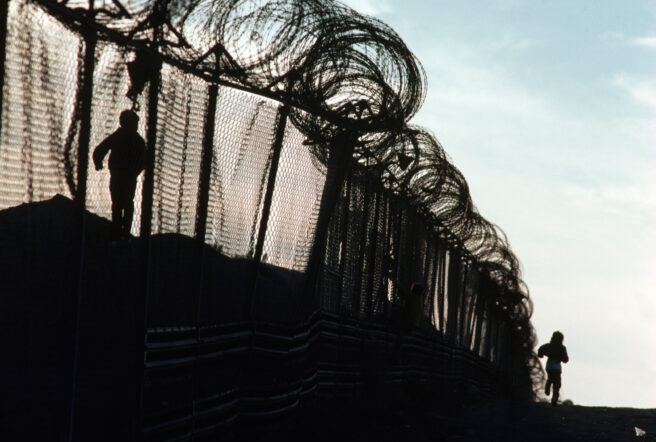
The Financial Crimes Enforcement Network (FinCEN) issued on January 13, 2023 an alert (the “Alert”) to financial institutions regarding the detection of financial activity related to human smuggling along the U.S. southwest border (“SW border”). The Alert builds upon FinCEN’s prior 2020 and 2014 human smuggling and human trafficking advisories in order to provide trends and typologies specifically related to human smuggling along the SW border. It also provides red flag indicators regarding transactions potentially related to human smuggling.
The Alert effectively lays out the breadth of the problem. Effectively detecting and reporting human smuggling and trafficking, however, can be difficult, given the extensive use of cash.
 The U.S. Government Accountability Office (“GAO”) recently issued a public version of a more detailed and confidential report previously sent to Congress summarizing the GAO’s review of the use of virtual currencies to facilitate human and drug trafficking. The GAO’s report,
The U.S. Government Accountability Office (“GAO”) recently issued a public version of a more detailed and confidential report previously sent to Congress summarizing the GAO’s review of the use of virtual currencies to facilitate human and drug trafficking. The GAO’s report,  Meaningful Overlap or Superficial Similarities?
Meaningful Overlap or Superficial Similarities? On October 6, the Department of Justice (“DOJ”)
On October 6, the Department of Justice (“DOJ”)  Fifth Post in an Extended Series on Legislative Changes to BSA/AML Regulatory Regime
Fifth Post in an Extended Series on Legislative Changes to BSA/AML Regulatory Regime Advisory Suggests that COVID-19 Pandemic Exacerbates Conditions Contributing to Trafficking
Advisory Suggests that COVID-19 Pandemic Exacerbates Conditions Contributing to Trafficking AML Standards May Exist in Theory, But Often are Not Enforced in Practice
AML Standards May Exist in Theory, But Often are Not Enforced in Practice
 Dr. Kateryna Boguslavska
Dr. Kateryna Boguslavska In the past month, the Government Accountability Office (“GAO”), a non-partisan legislative agency that monitors and audits government spending and operations, has issued a series of reports urging banking regulators and certain executive branch agencies to adopt recommendations related to trade-based money laundering (“TBML”) and derisking. These reports underscore (1) the importance of TBML as a key, although still inadequately measured, component of money laundering worldwide, and (2) that the GAO remains interested in assessing how banks’ regulatory concerns may be influencing their willingness to provide services.
In the past month, the Government Accountability Office (“GAO”), a non-partisan legislative agency that monitors and audits government spending and operations, has issued a series of reports urging banking regulators and certain executive branch agencies to adopt recommendations related to trade-based money laundering (“TBML”) and derisking. These reports underscore (1) the importance of TBML as a key, although still inadequately measured, component of money laundering worldwide, and (2) that the GAO remains interested in assessing how banks’ regulatory concerns may be influencing their willingness to provide services. Today we are very pleased to welcome guest bloggers
Today we are very pleased to welcome guest bloggers  According to the
According to the